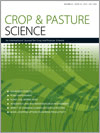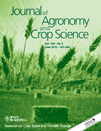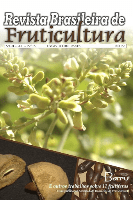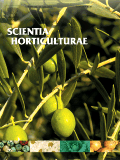
MAYDICA
metrics 2024
Empowering agriculture with cutting-edge research insights.
Introduction
MAYDICA is an esteemed scholarly journal dedicated to advancing knowledge in the fields of Agronomy, Crop Science, Genetics, and Plant Science, with a commitment to disseminating high-quality research that influences practices and policies in agriculture and crop management. Published by MAYDICA-IST SPER CEREALICOLTUR and based in Italy, the journal has been a pivotal resource for researchers since its inception in 1993. The journal is currently ranked in the Q3 category for Agronomy and Crop Science and Q4 for both Genetics and Plant Science, reflecting its growing impact within the academic community. Although it operates without open access, its rigorous peer-review process ensures the integrity and relevance of the research it publishes. MAYDICA seeks to foster collaboration among scientists, practitioners, and students, encouraging the exchange of innovative ideas and methodologies that address contemporary challenges in agricultural sciences. With a focus on timely research and developments, MAYDICA is an essential platform for those looking to enhance their understanding and application of agricultural advancements.
Metrics 2024
 0.21
0.21 0.40
0.40 0.60
0.60 40
40Metrics History
Rank 2024
Scopus
IF (Web Of Science)
JCI (Web Of Science)
Quartile History
Similar Journals

Crop & Pasture Science
Cultivating knowledge for a secure food future.Crop & Pasture Science is a leading journal published by CSIRO PUBLISHING, focusing on the critical fields of agronomy, crop science, and plant science. With an impressive Q2 ranking in both categories as of 2023, this journal plays a vital role in disseminating high-quality research that addresses the challenges in sustainable agriculture and food security. Featuring full open-access options, Crop & Pasture Science ensures your research reaches a wide audience, fostering collaboration and innovation among ecologists, agronomists, and plant scientists. With a steady record of contributions since its establishment and a convergence of knowledge from 2009 to 2024, this journal stands at the forefront of the agricultural sciences, providing a robust platform for the latest advancements and discoveries. Located in Australia, the journal serves a global community, making it an essential resource for anyone invested in the future of agriculture and environmental sustainability.

International Journal of Plant Production
Fostering dialogue and discovery in agronomy and crop science.International Journal of Plant Production, published by SPRINGER in Switzerland, serves as a leading platform for the dissemination of innovative research in the fields of Agronomy, Crop Science, and Plant Science. With an ISSN of 1735-6814 and an E-ISSN of 1735-8043, this journal has maintained its reputation by achieving a Q2 quartile ranking in both categories as of 2023, alongside notable Scopus rankings placing it in the top quartiles of its fields (Rank #105/516 and Rank #88/406, respectively). The journal's scope encompasses a wide array of topics vital to sustainable agriculture and plant production systems, making it a critical resource for researchers, professionals, and students striving for advancements in these disciplines. By fostering open scientific dialogue and supporting cutting-edge research, the International Journal of Plant Production is committed to contributing to the resolution of global food security challenges, enhancing agricultural practices, and promoting ecological sustainability.

JOURNAL OF AGRONOMY AND CROP SCIENCE
Advancing sustainable solutions in agronomy and crop science.JOURNAL OF AGRONOMY AND CROP SCIENCE, published by Wiley, stands as a leading platform in the fields of agronomy and crop science, reflecting its commitment to advancing knowledge through rigorous research. With an impressive H-index that signifies its scholarly impact, this journal has consistently maintained a prestigious Q1 ranking in both Agronomy and Crop Science, and Plant Science as of 2023. With a robust ranking of #46/516 in Plant Science and #39/406 in Agronomy and Crop Science according to Scopus, it sits comfortably within the top percentiles, emphasizing its relevance and authority in the academic community. The journal has been a vital resource since its inception in 1973, with ongoing coverage until 2024, making it an essential reference for researchers, professionals, and students looking to navigate the latest developments and insights in crop management and agricultural practices. Although it does not currently offer open access options, JOURNAL OF AGRONOMY AND CROP SCIENCE remains committed to providing high-quality, peer-reviewed content that fosters innovation and encourages sustainable solutions within the agronomy sector.

Revista Brasileira de Fruticultura
Cultivating Knowledge, Harvesting InnovationRevista Brasileira de Fruticultura, published by the Sociedade Brasileira de Fruticultura, is a leading scholarly journal dedicated to the advancement of research in the fields of agronomy, crop science, food science, horticulture, and plant science. With an impressive Open Access model adopted since 2001, the journal is committed to disseminating high-quality research from Brazil and beyond, promoting innovation and collaboration among researchers, professionals, and students alike. The journal currently holds a respectable Q3 category ranking in multiple fields as of 2023, reflecting its significance within the scientific community, specifically ranked #72 in horticulture and #257 in agronomy, among its peers. The Revista Brasileira de Fruticultura not only serves as a platform for original research articles, reviews, and case studies but also emphasizes practical applications and sustainable practices in fruit cultivation. Its aim is to enhance the visibility of Brazilian fruit research on a global scale, making it an invaluable resource for those invested in advancing horticultural sciences.

Legume Research
Unlocking the Potential of Legumes for Global ImpactLegume Research, published by the AGRICULTURAL RESEARCH COMMUNICATION CENTRE in India, is an essential peer-reviewed journal focusing on advancements in the field of agronomy, crop science, soil science, and plant science. With an ISSN of 0250-5371 and operating since 2008, this journal caters to researchers, agricultural professionals, and students interested in the critical role of legumes in sustainable agriculture and food security. It ranks within the third quartile (Q3) in several prominent categories, reflecting its contribution to the agricultural and biological sciences community—ranking #279 in Agronomy and Crop Science, #113 in Soil Science, and #376 in Plant Science based on Scopus metrics. Although not open access, Legume Research remains a vital resource for those seeking to enhance their knowledge and contribute novel research findings in the ever-evolving discipline of legume cultivation and utilization. With a clear objective to disseminate impactful research, this journal significantly contributes to the global understanding of legumes' ecological, economic, and nutritional importance.

Crop Journal
Connecting global minds for a sustainable agricultural future.Crop Journal (ISSN: 2095-5421; E-ISSN: 2214-5141) is a premier, open access journal published by KEAI PUBLISHING LTD, dedicated to advancing the fields of agronomy and plant science. Established in 2013, this journal has quickly established itself as a vital resource for researchers, professionals, and students, achieving a remarkable Q1 ranking in both Agronomy and Crop Science, as well as Plant Science. With an impressive position in the Scopus rankings—30th out of 516 in Plant Science and 25th out of 406 in Agronomy—it stands at the forefront of scholarly discourse, representing the latest innovations and research breakthroughs within the global agricultural community. The journal embraces a broad scope that encompasses all aspects of crop science, aiming to foster understanding and propel advancements in sustainable agricultural practices. Accessible from anywhere in the world, Crop Journal plays a crucial role in disseminating knowledge that addresses the challenges of food security and environmental sustainability, making it an indispensable tool for those invested in the future of our planet's agriculture.

Pesquisa Agropecuaria Tropical
Exploring the forefront of agronomic research.pesquisa Agropecuaria Tropical is a premier Open Access journal dedicated to advancing the knowledge and practices within the field of agronomy and crop science. Since its inception in 1971, this peer-reviewed journal, published by the Universidade Federal de Goiás, has played a pivotal role in disseminating high-quality research from Brazil and beyond. Operating under an Open Access model, it ensures that scholarly articles are freely accessible, thereby fostering greater collaboration and innovation. With a Scopus ranking placing it in the 32nd percentile among its peers in agricultural and biological sciences, and a current classification in the Q3 category of agronomy and crop science, the journal serves as an essential resource for researchers, professionals, and students alike. As it continues its publication journey from 2010 to 2024, it remains committed to contributing valuable insights and advancements in the agricultural sector, ultimately influencing sustainable practices and food security.

Tropical Plant Pathology
Innovating solutions for sustainable agriculture.Tropical Plant Pathology, published by Springer, is a leading journal in the fields of Agronomy and Crop Science as well as Plant Science, as evidenced by its impressive position in the Q2 quartile rankings for 2023. This esteemed journal, with an ISSN of 1983-2052, focuses on the intricacies of plant diseases and their management, showcasing significant research that addresses challenges faced by agronomists and plant scientists, particularly in tropical environments. With a Scopus ranking of 147th in Plant Science and 116th in Agronomy and Crop Science, it is recognized for its contribution to the advancement of knowledge in these areas, which is crucial for food security and sustainable agriculture. The journal operates under a model that facilitates researchers and professionals in disseminating their work effectively, fostering an ongoing dialogue among scholars dedicated to enhancing crop health and productivity. Discover more about groundbreaking studies in plant pathology that shape the future of agriculture!

Revista de la Facultad de Agronomia de la Universidad del Zulia
Innovating Agriculture: Insights from the Heart of VenezuelaWelcome to the Revista de la Facultad de Agronomia de la Universidad del Zulia, a key publication in the fields of Agronomy, Animal Science, Food Science, and Plant Science. Published by the Facultad de Agronomía, Universidad del Zulia, this journal aims to foster academic dialogue and disseminate impactful research that advances knowledge and practice within these disciplines. Operating under the ISSN 0378-7818 and E-ISSN 2477-9407, this journal offers a platform for both emerging and established scholars to share their discoveries and innovations. Despite its challenges, as reflected in its Q4 ranking across multiple categories in 2023, it remains a vital resource for the Venezuelan scientific community and beyond. Readers will benefit from a diverse array of studies and discussions that address contemporary issues in agriculture and related fields, helping inform best practices and policy. Engage with cutting-edge research from Venezuela and contribute to the development of agronomic sciences in the region.

SCIENTIA HORTICULTURAE
Innovating today for a greener tomorrow in horticulture.SCIENTIA HORTICULTURAE, published by Elsevier, is a leading journal in the field of horticulture, with an impressive impact factor reflected in its Q1 ranking (2023) and position as #6 out of 115 in the Scopus category for Agricultural and Biological Sciences. This journal plays a pivotal role in disseminating cutting-edge research and innovations in horticultural science and technology, contributing significantly to the understanding of plant cultivation, production, and management. With continuous publication since 1973, SCIENTIA HORTICULTURAE offers an essential platform for researchers, professionals, and students alike who are focused on the advancement of sustainable horticultural practices. Although it is not an open-access journal, it provides a wealth of data and findings that can be accessed through institutions and libraries. Located in the Netherlands at RADARWEG 29, 1043 NX AMSTERDAM, this journal remains an invaluable asset to the global horticultural community throughout its converged years, fostering collaboration and elevating standards in horticulture research.